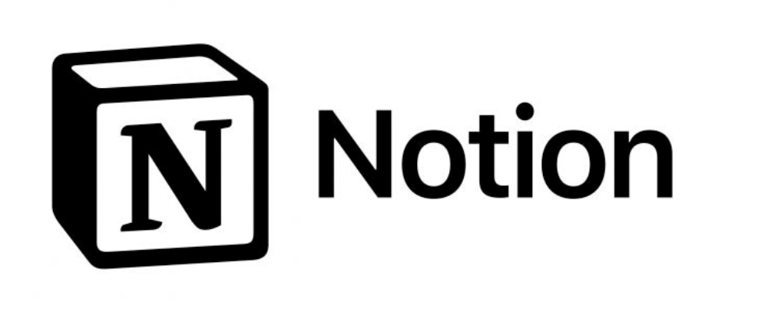Notion: The Evolution of the Digital Workspace that Revolutionized Productivity
In today's technological landscape, few tools have redefined the concept of a digital workspace like Notion has. Launched in 2016, this software marked a significant turning point in graphical interface development and digital information management, addressing needs long felt by professionals and businesses alike.
FIRST PAGEINNOVATION AND EMERGING TECHNOLOGIESDIGITAL CULTURE AND PHILOSOPHY


In today's technological landscape, few tools have redefined the concept of a digital workspace like Notion has. Launched in 2016, this software marked a significant turning point in graphical interface development and digital information management, addressing needs long felt by professionals and businesses alike.
The Evolution of the Digital Workspace
The concept of the digital workspace has undergone profound changes over recent decades. Before Notion, users were compelled to use separate tools for managing different types of content:
Text documents in Microsoft Word or Google Docs
Spreadsheets in Excel or Sheets
Presentations in PowerPoint or Slides
Task management in Asana, Trello, or other dedicated tools
Personal notes in Evernote or OneNote
Knowledge bases in wikis or similar systems
This fragmentation inevitably led to inefficiencies: scattered information, duplicated data, synchronization issues, and collaboration challenges. Users constantly switched between applications, wasting time and disrupting workflow fluidity.
Notion's Revolution: "All-in-One Workspace"
Notion revolutionized this paradigm by introducing a completely new approach: a single environment capable of managing virtually any type of content. Its strength lies in combining diverse functionalities into a flexible and customizable platform.
Innovative Features of Notion’s Interface
Notion introduced several design elements that transformed user experience:
Composable Blocks: Notion’s interface is based on blocks—modular elements that can be dragged, rearranged, and nested, providing unprecedented flexibility in content creation.
Relational Databases with Multiple Views: Notion made relational database power accessible to non-technical users, allowing the same data to be viewed as tables, kanban boards, calendars, galleries, or timelines.
Nested Pages: The hierarchical structure of pages, similar yet more intuitive than a wiki, enabled logical and scalable organization of information.
Minimalist yet Powerful Design: The clean interface conceals advanced functionalities that reveal contextually when needed, reducing cognitive overload.
A Turning Point in Software Development
Notion didn’t just create an innovative product; it profoundly influenced modern software design and development:
No-code/Low-code Approach: Notion anticipated the no-code movement, enabling users to build complex systems without writing code, democratizing personalized digital tool creation.
Convergence of Data and Interface: Notion blurred the line between structured and unstructured data, seamlessly transitioning from formatted text to data tables within the same interface. This convergence inspired new products that erase boundaries between content types.
Adaptive Design for Various Contexts: The application intelligently adapts to various use cases, functioning as a text editor, project management tool, CRM, knowledge base—or all simultaneously. This versatility redefined user expectations for productivity tools.
Cultural and Organizational Impact
Beyond technical innovations, Notion profoundly influenced digital work culture:
Personal Knowledge Management (PKM): Notion boosted the PKM movement, inspiring professionals to actively and structurally engage with digital information through the "second brain" concept.
New Collaboration Models: Notion facilitated more fluid and transparent collaboration, where information is openly accessible and editable by all team members, reducing silos and fostering collective innovation.
Culture of Documentation: Notion promoted continuous documentation, systematically recording and sharing processes, decisions, and knowledge, enhancing operational continuity and onboarding processes.
The Future of Digital Workspaces
Notion's market impact is evident through the wave of innovation it inspired. Competitors have adopted elements of its approach, and new generations of tools are emerging, further advancing the vision of an integrated digital workspace:
AI Integration: Integrating artificial intelligence into digital workspaces represents the next frontier. Notion has already introduced AI assistant features, marking just the beginning of an evolution that promises automation and increased productivity.
Advanced Real-time Collaboration: Collaboration capabilities continue to advance with real-time editing, contextual commenting, and integrated feedback mechanisms directly within workflows.
Algorithmic Personalization: Future workspaces will automatically adapt to user preferences and behaviors, presenting the most relevant information in context-specific formats.
Conclusion
Notion represents a watershed moment in digital productivity tools. Its innovative approach has redefined the digital workspace, deeply influencing software development and organizational culture.
Notion’s true revolution was not only technological but conceptual: demonstrating the possibility of unifying diverse information management methods within a coherent, flexible environment. In an era marked by information overload and tool fragmentation, this integrated vision provides immense value.
As we look ahead, Notion’s legacy will likely inspire new generations of increasingly intelligent, adaptive, user-centric digital tools. The challenge for designers and developers will be maintaining simplicity and accessibility even as functionalities become more powerful and sophisticated.